‘Work that poll!’ Senior Adjoa Asare Recounts Her Experience as a Poll Worker for the 2020 Elections
Adjoa Asare working as a high school tech Electronic Support Specialist at a Harris County polling site.
Resurrection Metropolitan Community Church in the Heights neighborhood of Houston, Texas: long lines, hundreds of people, and flag-flying protestors from either side, standing the mandated 100 feet outside the doors. It’s usually a place of worship and community unification, but this October, it was repurposed for another sacramental ritual: general election voting. CVHS Senior Adjoa Asare stands outside the church doors, aware of her position’s gravity. Although we are seeing continued accusations of election fraud, despite a winner being declared to take the White House next January, it is undeniable that the role of election workers, like Asare, helped to maintain the integrity of this most crucial election.
“This election is so important. Now, more than ever, in these times people are really opinionated and really passionate about who they’re voting for,” says Asare
In 2020, we’ve endured the election of the century, considered the most important in our lifetime. The leading factors of this election, of course, have been the voters and the candidates, who have received months of media coverage since campaigns began. However, once the season ended on the evening of November 3rd, a new group came to the front of national attention: the thousands of Americans, Democrat and Republican, that have worked late nights & early mornings, behind the scenes, to run election centers and count votes mailed in, dropped off, and cast in-person. These past few months, they have been the facilitators that kept the system running smoothly, and without them, there would have been no election. Arguments over who is the better candidate would have remained arguments.
A senior at Carnegie, Asare has sacrificed some of her time spent being a student, a student athlete, and a teenager, to the benefit of our democracy, by working at a local poll. However, she has faced obstacles, having been victim to the divisiveness of this election season.
“For this particular poll, I was an electronics specialist. My main job was to greet the voters as they came in, and then demonstrate how they scan their ID card when they get to the clerk’s desk,” Asare explains.
In this election, students were a group in high demand for poll centers. Both their intuitive understanding of technology and relative invulnerability to COVID-19 contrast them from the population that usually fills these positions: the elderly and retired. Harris County opened their polls to high school students above the age of 16, for the reasons stated above and, according to Texas Secretary of State Ruth Hughs’s website, “to provide students with a greater awareness of the electoral process and the rights and responsibilities of voters.”
“Even though I can’t vote myself, I wanted to have experience in what it’s like during the voting process, because I know it’s very important. Also, it was a work opportunity for me. I wanted to take it,” says Asare.
At $17/hour, it’s quite a lucrative work opportunity. Student workers are also allowed to choose their own shifts based on availability. Such a sizeable compensation along with flexible hours are sure to make poll work attractive to the young people in the area. One might imagine the process to qualify and apply would be difficult.
“It was actually very simple. Junior year, when I signed up for the March 3rd election, which was my first, what was required was just one sheet of paper giving your address, your name, and then your parent had to sign it. Our assistant principal had to sign it as well. That was about it, you just submitted that. And then, if they say yes–which they most likely will– you submit how you want to be paid: either your card information, or if you want to be paid with a check. That was really it on the application process. There’s no essay, no listing your experiences, so anyone can really do it.”
Not requiring a formal application, complete with transcript, references, and a list of extracurriculars–as many high schoolers are used to seeing in an application–along with good pay and flexible hours makes the position less like a job, and more like a paid, hands-on civic learning experience. It’s a perfect combination of intellectual and monetary reward, for a job that’s easy to do with hours that are based mainly on your preference. This is the ideal situation for any job. What’s the catch? Adjoa relays that it wasn’t always easy to focus on the learning aspect. She describes an encounter she had with an older, white voter, while she was working.
“I said, ‘Thank you for voting, bye!’ and he gave me a really nasty look, and then he proceeded to talk to another white worker who was there. Yeah, it affected me,” says Asare.
His rudeness, Asare figured, might have been attributed to the way he cast his vote.
“People sometimes can be very opinionated. When it comes time to vote, sometimes, based on their attitude, you can kind of tell what kind of person they are, and I don’t want to assume what kind of person they are, but I feel like some people aren’t afraid to show themselves to you,” she says.
The division across party lines, in this election, was at an all time high. With the rhetoric used by both Presidential candidates to defame the other, and its dominance in biased major news sources (on both sides of the spectrum), it’s hard not to have an opinion, and for some, even harder to not express that opinion. While freedom of speech is a cornerstone of a free and just society, political conversations are not always constructive. What begins with the potential to be an exchange of ideas for a mutual understanding based on facts, more than likely devolves into a screaming match using the unilateral talking points of the participant’s preferred party.
“I feel like it should be a very positive environment, the voting environment, between both parties, the working people, and the people who are coming to vote. But some people just don’t really have any politeness when it comes to that.”
Even when the exchange doesn’t result in voiced, confrontational aggression, the weight of some conversations can still be heavy on those involved, voluntarily and involuntarily.
“During the July 15 election I worked at, I actually worked with Trump supporters,” Asare recounts. “You don’t pick which party you get assigned to, so I was assigned to help the Republican Party. They were very opinionated, it wasn’t the best thing to listen to. There were some things that they talked about that are pretty much racist, and I just had to sit there and listen to it. They talked about George Floyd’s death, since it was around that time. They said that it was basically a setup. They said, ‘Oh, it was a setup for the government to get people to turn against the police,’ which was very hard to listen to. They said things like people shouldn’t be coming into the country, and if they have a problem they should just leave. Many things that we’ve heard before. They said that systematic racism wasn’t real.”
To restate, the Texas Secretary of State presents poll work as an opportunity “to provide students with a greater awareness of the electoral process,” but, from what Asare has recounted, there is a lesson to be found in that greater awareness: politics does make its way into non-partisan processes. Asare and her experiences prove that one can’t participate in civic duty and exercise their rights without having to face awkward encounters, and uncomfortable, overheard conversations. Political ideology, partisan affiliation, and sometimes even blatant prejudice seem to be inescapable aspects of the voting process, which America and its government depend on.
Despite this, in the face of political conflict, Adjoa continued to do her job with a positive attitude, not letting it affect her.
“It made me not want to continue to be nice to these voters,” Adjoa admits, “but I know that not everyone is like that.”
And it’s clear that Asare was still able to benefit from the educational aspect of the job.
“I’ve learned that the voting process is very easy but it’s still very important. And I feel a lot of people in the past may not have felt that their vote really matters, but it really does. And it really is quick, so I feel that everyone should vote starting at 18,” Asare explains.
She was able to comprehend the importance of voting, enough that she made her own opinions on the process.
“Early voting is really important, because I know that during early voting, the lines are usually not that long. Where I worked, there was maybe a maximum of five people in line. Just getting it done is really important, and it’s probably the safer route too. You don’t want to wait to vote on the last day, and then something comes up, and now you can’t. You have a two week period. So I say, if you have the chance, vote early!”
She also came to understand the importance of her and others’ position in this election.
“A lot of people who came in to vote even thanked us for doing this; not just because we’re helping them, but because the young people working there are also learning about the voting process.” Asare reflects, “I think that we did bring a very positive energy to the workplace, and that’s always important, because this election, and voting in general, can be a very stressful time for people. Coming to a place and seeing people who are happy to be there, that are really invested in the future is very encouraging.”
With all that occurred, Asare remained hopeful for future poll workers, in future elections.
“There are people who can’t even vote yet, like me, working there, and I think that years from now we’re going to see an even larger turnout in voting within the younger generation, maybe because of this. Maybe younger people coming in to vote, seeing people close to their age working here, will be inspired too, and want to get involved as well,” Asare predicts.
Your donation will support the student journalists of Carnegie Vanguard High School. Your contribution will allow us to cover our annual website hosting costs and fund field trips, competition fees, and equipment. We appreciate your support!

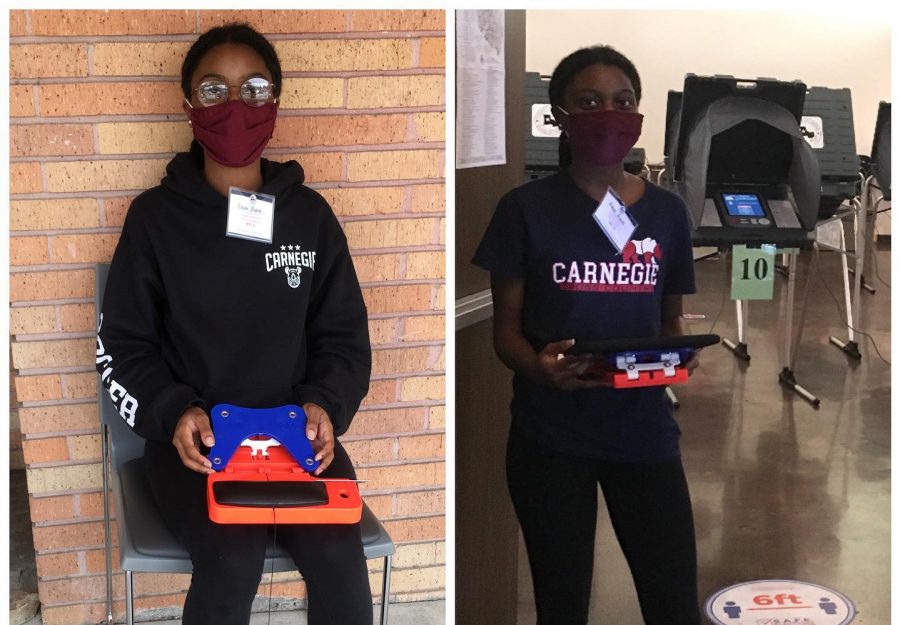
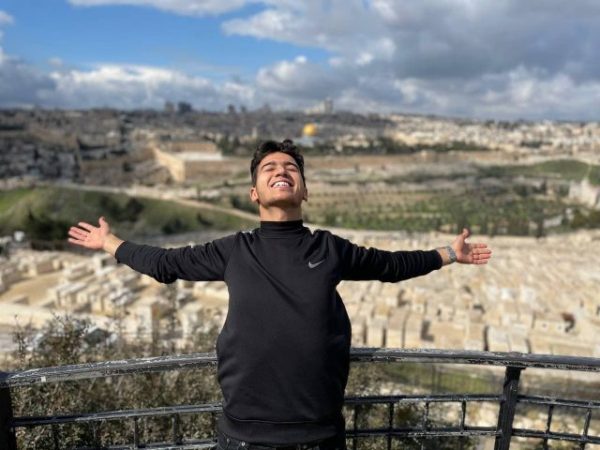
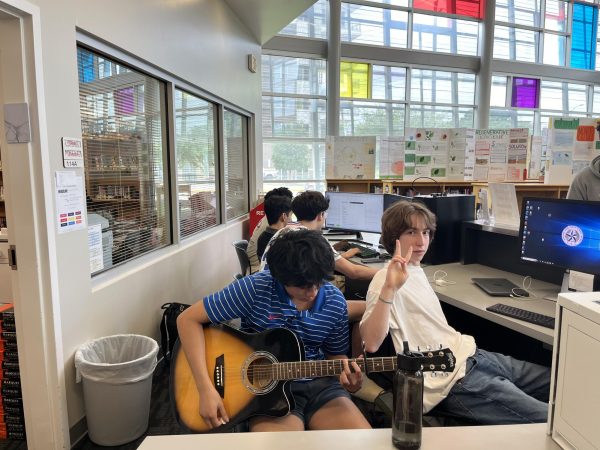
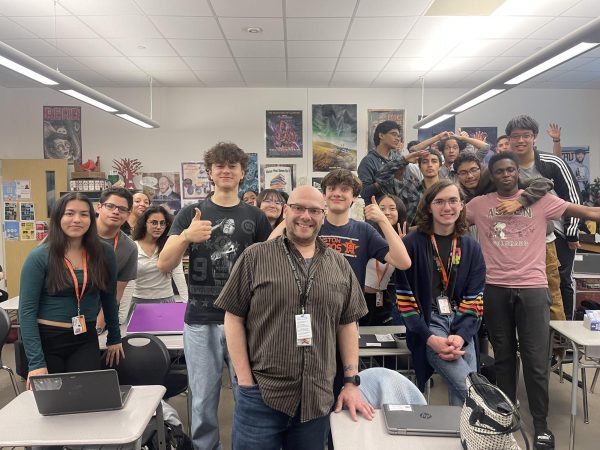

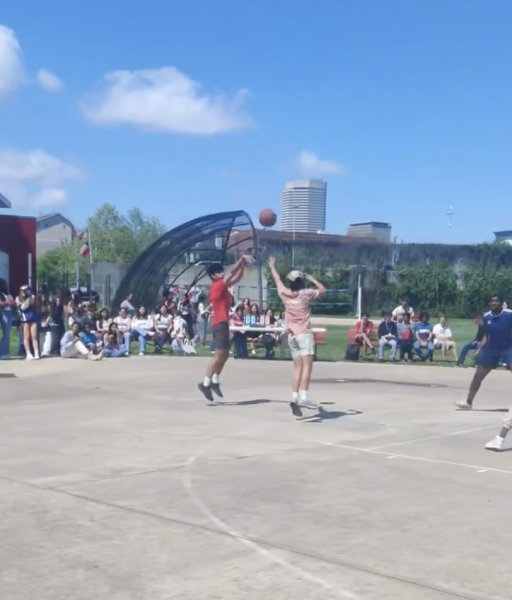
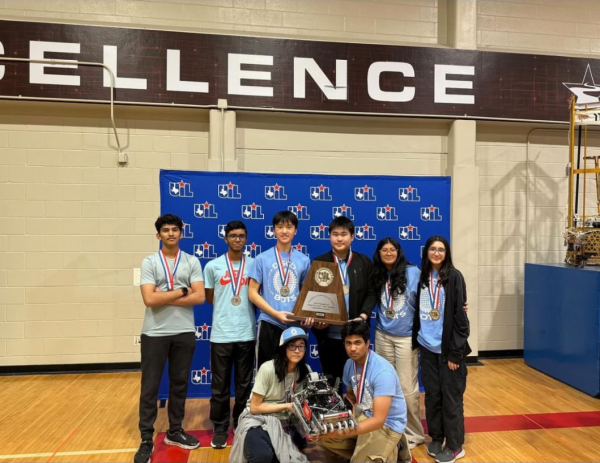
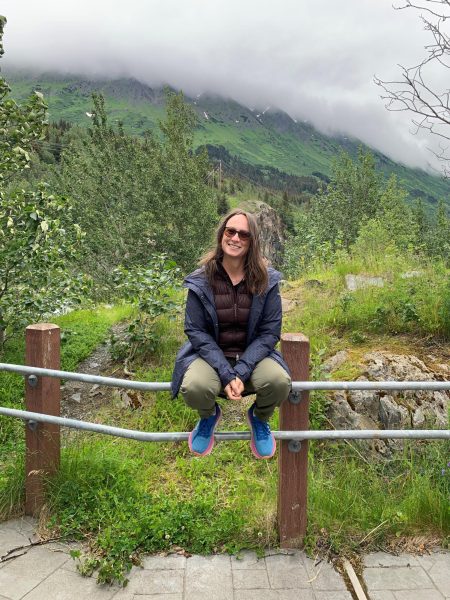

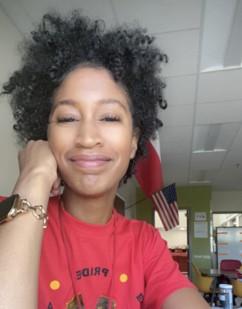
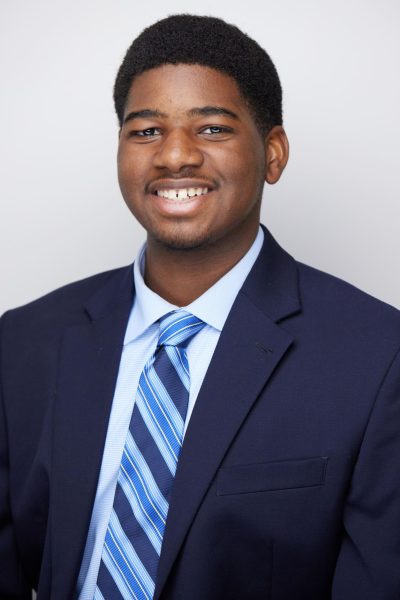
Maya Collins • Nov 19, 2020 at 10:20 pm
This was a very well written article, sometimes pictures can be a distraction but for this piece it was a much-appreciated addition, they really brought an extra layer to the story. Nice job
Talia Moghnieh • Nov 13, 2020 at 11:05 am
I really loved this article, it was really well written and allowed Asare’s words to shine and be the interpreted and absorbed as she said it. This article also flowed very well,
Thomas Dowe • Nov 12, 2020 at 11:27 am
The introduction was very moving.
Julian Namerow • Nov 12, 2020 at 11:26 am
Your story was really detailed and I loved the begging.
Judith Carrizales • Nov 12, 2020 at 11:23 am
The story was amazing and the quotes and pictures were cohesive with the story.
Vivian • Nov 12, 2020 at 11:18 am
I really liked your article and I think that the interviews are very thorough. GJ
Lexy Silva • Nov 12, 2020 at 11:18 am
very good quote structure and good use of end quote because it reflects the importance covered
Emma Pierce • Nov 12, 2020 at 11:15 am
I like how you incorperated multiple perspectives that she had over her acitivty doing the polls and the perspectives that others had. there is a good idea about the experience she had because you are probably asking her these questions that prompt emotion and how she feels about what she is doing and the people around her.
Jonathon Morales • Nov 12, 2020 at 11:14 am
Very good story, I think this shows both the good and bad of being a poll worker.
My-Tran Vo • Nov 12, 2020 at 11:11 am
Im really happy to see that a CVHS was able to work with one of the most historic elections in the US. I cant believe that she had to work with racist people in the Houston area. This feature really opened my eyes on how different people act during elections in Houston and how it effects poll workers.
Andres Pargas • Nov 12, 2020 at 11:08 am
The story is good, the interview and the pics were there, well done!